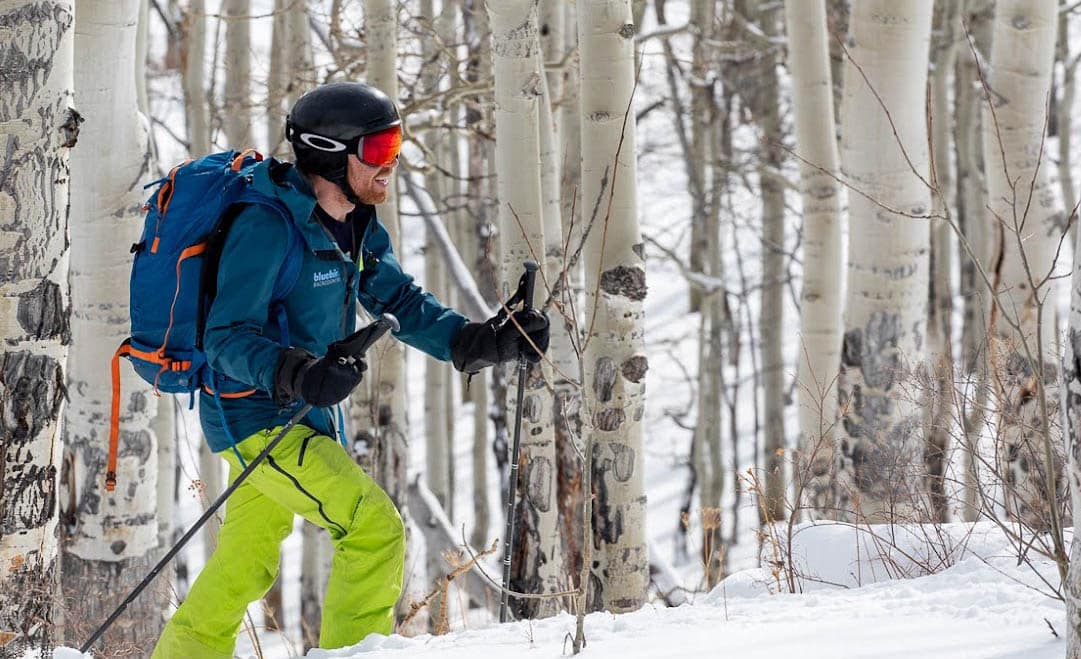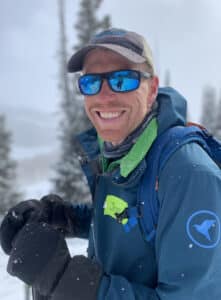
Jeff Woodward skiing at Bluebird Backountry. (Submitted photos)
Startup ski mountain Bluebird Backcountry announced in July that it won’t operate this winter after three seasons running a lift-less resort on a ranch near Steamboat Springs. It never could quite solve the real estate puzzle.
Jeff Woodward, a 40-year-old Boston native, spent the last six years building the backcountry-only ski area with his cofounder Erik Lambert. The business raised $2 million from investors.
But Bluebird’s insurmountable hurdle was the three-hour drive from Denver, Woodward said. The addition of some overnight lodging this past season, in the form of trailers and yurts, wasn’t enough to overcome it.
Woodward talked with BusinessDen about the fatal flaw of the business and what he learned along the way.
The following transcript was edited for clarity.
BusinessDen: How close were you to pushing into the black?
Jeff Woodward: At the current location (in between Kremmling and Steamboat), about two more years. If we had closer real estate, a year. If we had a location within 90 minutes of the Front Range, we’d be profitable in year one.
We got incredible reviews from customers, but the rate of skier return was 20 percent. It was the drive. When we interviewed people on why they didn’t come back, the first was the distance of the drive. It’s such a long trip.
BD: Was your business plan always to lease private land?
JW: At our stage and maturity of the startup, we never thought a forest permit was a good bet. The amount of time before we got the permit and the money that it may take, plus the studies and uncertainty – we thought it would take three to 10 years. We could have been wrong about that. Obviously it’s a thing we didn’t do. Maybe it was a good call, maybe it wasn’t a good call.
BD: Then why not lease land closer to Denver?
JW: There’s just not that much good land near Denver. The land constraints are super intense: for a ski area you need a mountain, a huge volume of snow and it needs to be close to people. Plus you need a road to the base.
BD: How many parcels did you seriously look at?
JW: Probably across the western U.S. – we wanted to open a handful of these – we did some sort of outreach on around 50. But we weren’t able, with our strategy of private land, to find good locations and get permission.
BD: Did you think about trying to move the location?
JW: Continually. We never stopped trying to find other land.
BD: What’s your biggest disappointment in shutting down?
JW: The people who came and loved it, and that we can’t keep it going for them.
BD: What are you most proud of?
JW: That we built something that people who came really loved. It was an underdog story: nobody thought we could get anything going, and we created a backcountry ski area.
BD: What’s the biggest lesson from this phase of your career?
JW: One would be that starting something is incredibly hard but deeply fulfilling. There’s a million ways it tests you. It finds every weakness you have.
It’s really helpful to get good at quickly understanding what the reality is you’re operating in. And then act based on that reality and try to change it.
